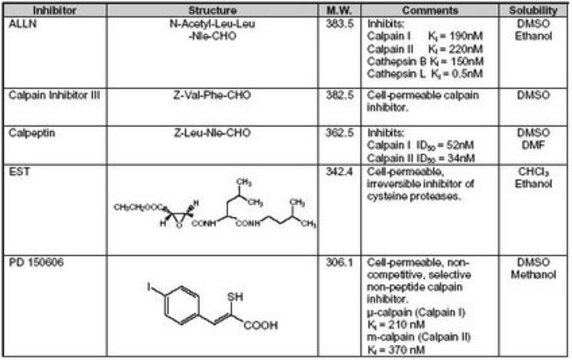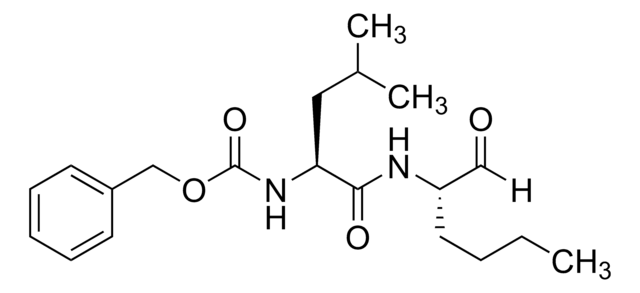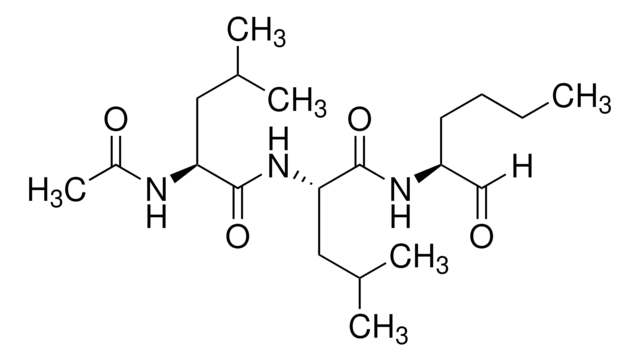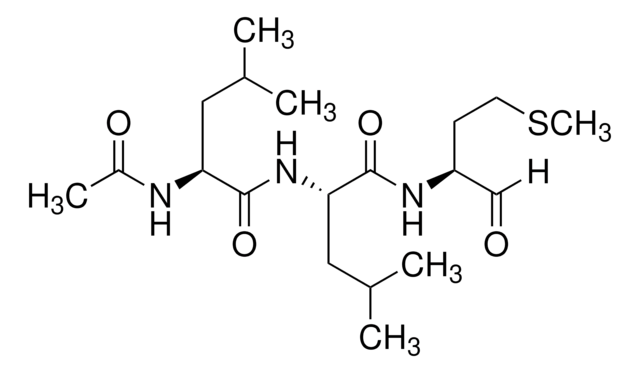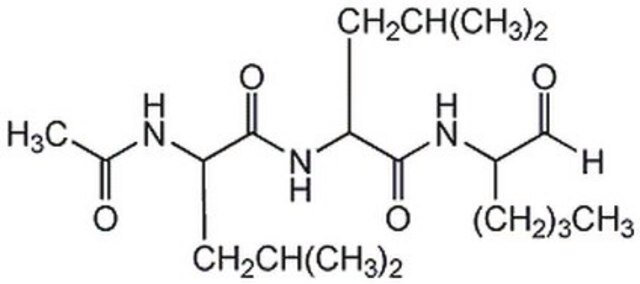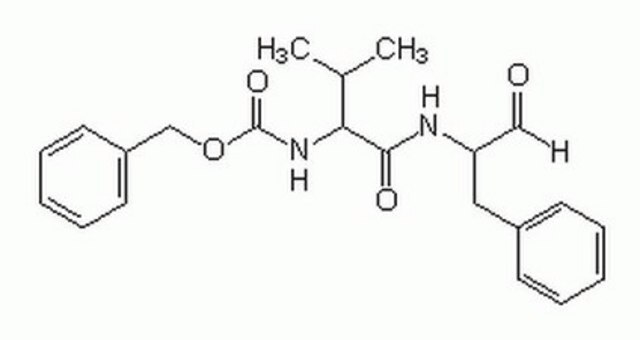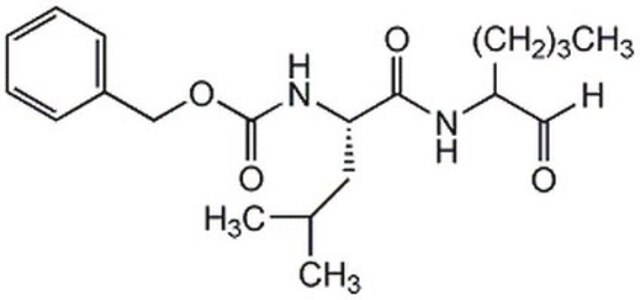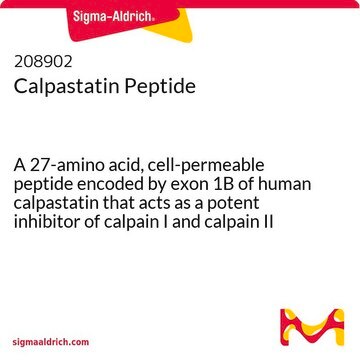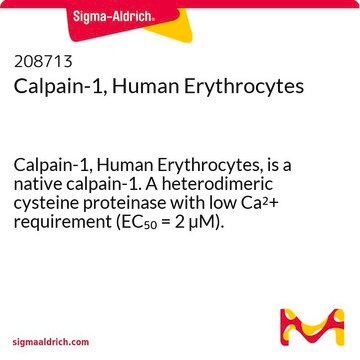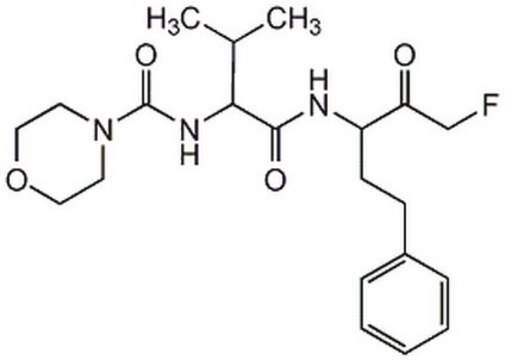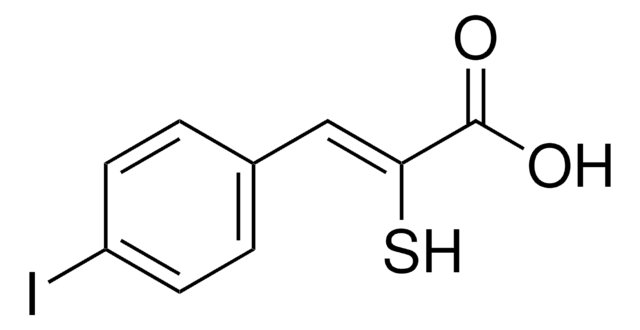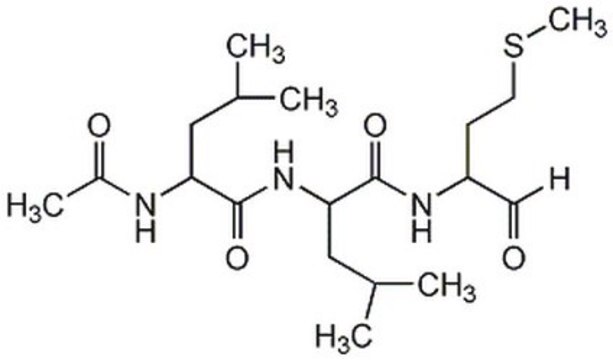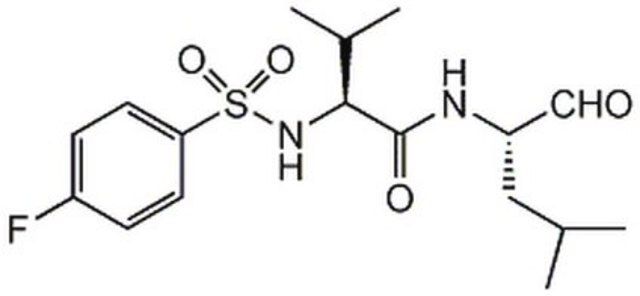A6185
Calpain Inhibitor I
≥97% (TLC), powder
Synonym(s):
ALLN, Ac-LLnL-CHO, MG-101, N-Acetyl-L-leucyl-L-leucyl-L-norleucinal, N-Acetyl-Leu-Leu-Norleu-al
About This Item
Recommended Products
biological source
synthetic (organic)
Quality Level
assay
≥97% (TLC)
form
powder
color
white
solubility
DMSO: soluble
ethanol: soluble
storage temp.
−20°C
SMILES string
[H]C(=O)[C@H](CCCC)NC(=O)[C@H](CC(C)C)NC(=O)[C@H](CC(C)C)NC(C)=O
InChI
1S/C20H37N3O4/c1-7-8-9-16(12-24)22-19(26)18(11-14(4)5)23-20(27)17(10-13(2)3)21-15(6)25/h12-14,16-18H,7-11H2,1-6H3,(H,21,25)(H,22,26)(H,23,27)/t16-,17-,18-/m0/s1
InChI key
FMYKJLXRRQTBOR-BZSNNMDCSA-N
Gene Information
human ... CAPN1(823) , CTSB(1508) , PSMA1(5682)
Looking for similar products? Visit Product Comparison Guide
Application
- as a component of protease inhibitor cocktail for gel shift analysis
- for treating HeLa cell cultures
- for inhibition of 26 S proteasome in 26 S proteasome inhibition assays
Biochem/physiol Actions
Storage Class
11 - Combustible Solids
wgk_germany
WGK 3
flash_point_f
Not applicable
flash_point_c
Not applicable
ppe
Eyeshields, Gloves, type N95 (US)
Certificates of Analysis (COA)
Search for Certificates of Analysis (COA) by entering the products Lot/Batch Number. Lot and Batch Numbers can be found on a product’s label following the words ‘Lot’ or ‘Batch’.
Already Own This Product?
Find documentation for the products that you have recently purchased in the Document Library.
Customers Also Viewed
Related Content
DISCOVER Bioactive Small Molecules for Nitric Oxide & Cell Stress Research
Our team of scientists has experience in all areas of research including Life Science, Material Science, Chemical Synthesis, Chromatography, Analytical and many others.
Contact Technical Service